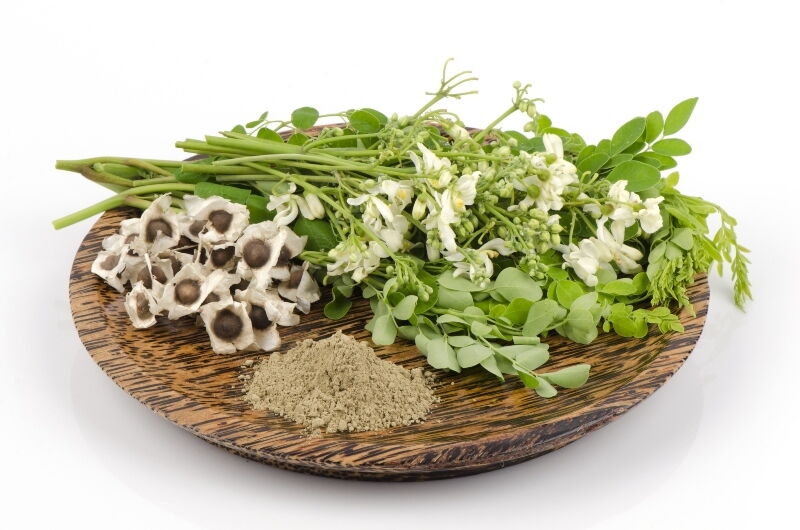The Moringa Oleifera is a plant native to the areas of India, Pakistan, Afghanistan and some tropical countries. It’s also called "miracle tree" or "miracle tree" because of its medical and beneficial properties. These properties it has been used for centuries in the culture of these countries. We can identify antiviral, antifungal, anti-inflammatory and anti-depressive effects.
In this article, we will deepen each of these benefits and we will see how to include it in our food integration plan in order to exploit all its properties.
Contents
First, we see what is the nutrient content of the plant. It is in fact particularly rich in vitamins and minerals.
Vitamin A, vitamins of the B complex (B1, B2 and B3). We also have a good content of Vitamin C. As for minerals we count potassium, calcium, iron, magnesium, phosphorus and zinc. Already from this first profile, we can see a great richness at the nutritional level.
We then have the content of several antioxidant molecules such as quercetin, which can decrease blood pressure and chlorogenic acid, which can improve the management of carbohydrates and reduce the post-prandial glycemic spike.

Benefits
Among the benefits that can be drawn from the nutritional value of this plant, we can identify purely aesthetic benefits and health benefits.
In fact, thanks to its vitamin and mineral content, the Moringa has a protective action on the skin and hair. Moring oil in fact allows you to protect the hair from free radicals keeping them clean. Moringa has a decent content of proteins and detoxifying and moisturizing elements that are logical for the benefit of hair and skin.
The anti-inflammatory properties allow a soothing action towards the oedema, ie the swelling of liquids resulting from inflammation for trauma or falls.
It has an action as hepatoprotective, so it benefits the liver when using drugs that can damage it. It contains niazimicin, a molecule that suppresses the development of cancer cells.
Scientific studies have shown that Moringa is able to help gastric problems such as constipation, gastritis and ulcerative colitis. The vitamin content of group B promotes digestion and antibacterial and antibiotic action allows to avoid the proliferation of infections or bacterial proliferation.
The calcium and phosphorus content benefits the bones, this is in synergy with anti-inflammatory properties.
Psychically it seems to improve situations of depression, anxiety and accumulated fatigue by taking an interesting place as a natural adaptogen.
How to integrate Moringa into our food plan
We can find natural extracts of Moringa in the form of supplements. Typically, the dosage used is 600 mg. which, usually, corresponds to the intake of one capsule per day. In the case of cosmetics to be used on hair and skin, you can find a range of products based on Moringa. In addition, to reduce inflammation and oedema, there are several creams that contain Moringa extract.
Conclusions
We have seen that the Moringa is a plant with extraordinary properties and it is worth inserting it cyclically, with preventive purposes but also in correspondence of marked needs, in our plan of alimentary integration.
Again, we have discovered how nature provides us with incredible help and many solutions that we can exploit for our better health and beauty.
